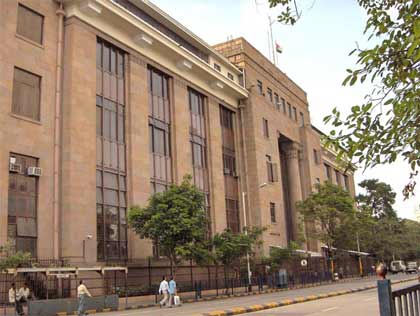RBI decreases Repo rate by 0.25%

The Central Reserve Bank has announced its sixth monetary review policy. RBI has reduced the repo rate from 6.5 to 6.25 percent. While the reverse repo rate has also been reduced to 6.00 percent. Reduction in repo rate is going to provide relief to the common man, now the interest rates on home loan will be cut. Four out of 6 MPCs supported the decision to cut the repo rate, while the Viral Acharya and Chetan Ghate were not in favor of a cut in the repo rate.
RBI says that the country’s GDP growth could be 7.4% in 2019-20. While the rate of inflation could be 3.2 in the first quarter of 2019-20, 3.4% in the second and 3.9 in the third quarter. By taking a big decision, the RBI has increased the loan limit for farmers. Now, without any guarantee, the farmers will get a loan of up to 1.60 lakhs, earlier this limit was upto Rs. 1 lakhs. The notice will be issued soon for this.
In fact, in its bilateral monetary review, the central bank determines repo rate and cash reserve ratio for all government and non-government banks, while measuring the current economic conditions of the country and the challenges facing the global economy.
What is a Repo rate?
Repo rate is the rate at which a bank in the country takes a short term loan from the Reserve Bank. The repo rate is determined by the interest rates in the country on which the business and common bank consumer receives interest on the loan taken from the bank or deposited in the bank. At the same time, the cash reserve ratio is a part of the total currency held by a bank, which is under central bank. By reducing the increase in the ratio, the Reserve Bank makes changes in liquidity and bank loan capability in the market.
On the last day of the three-day long meeting, businessmen across the country are also looking at how they are evaluating inflation at the present time. Apart from this, Central Bank also works to advise the Central Government by assessing the impact of the ongoing and proposed schemes of the Central Government on the public exchequer. Significantly, in the last few years, there has been controversy over the monetary policy between the central government and the Reserve Bank. Due to these disputes, the former governors have said that the central government has to protect the autonomy of the Reserve Bank.
It is worth mentioning that in the interim budget on February 1, the Central Government has announced the Prime Minister Kisan Yojana. Apart from this, the government has decided to provide relief to the middle class in income tax. Where the impact of tax announcement for the middle class will be reflected in the new fiscal year on the public exchequer, the farmers’ plan has been proposed to start from the current financial year. The impact of these two schemes will be on the revenue and expenditure of the Central Government, which could lead to a serious financial crisis and serious challenge already. So, in this sixth monetary policy, people’s eyes will also be on whether the Reserve Bank makes any comment on the financial loss.
It is noteworthy that in the interim budget, the Central Government has estimated that in the next financial year 2019-20, revenue from goods and services tax will increase by 18 percent to about 7.60 trillion rupees (million crores). At the same time, in the current financial year, the government expects that it will lose the GST revenue target by 1 trillion rupees. For the current financial year, the target of Central Government was fixed at 7.43 trillion rupees but in the interim budget it has been changed to 6.43 trillion rupees. Obviously, this is due to the central government is ready for the financial crisis.
At the same time, the interim budget estimates in revenues through income tax will increase to 6.2 trillion with an increase of 17.2%. At the same time, 22.8% more revenue has been assessed in the current financial year. In the financial year 2017-18, the government had received a total revenue of 4.3 trillion rupees from income tax. But looking at the provisions made in the interim budget, the Central Government has announced zero tax, giving relief through rebate to about 30 million tax payers. The Central Government expects that this relief will result in a loss of Rs 68.5 million to its revenue. Therefore, in this area of revenue also the challenge for the government is serious.








